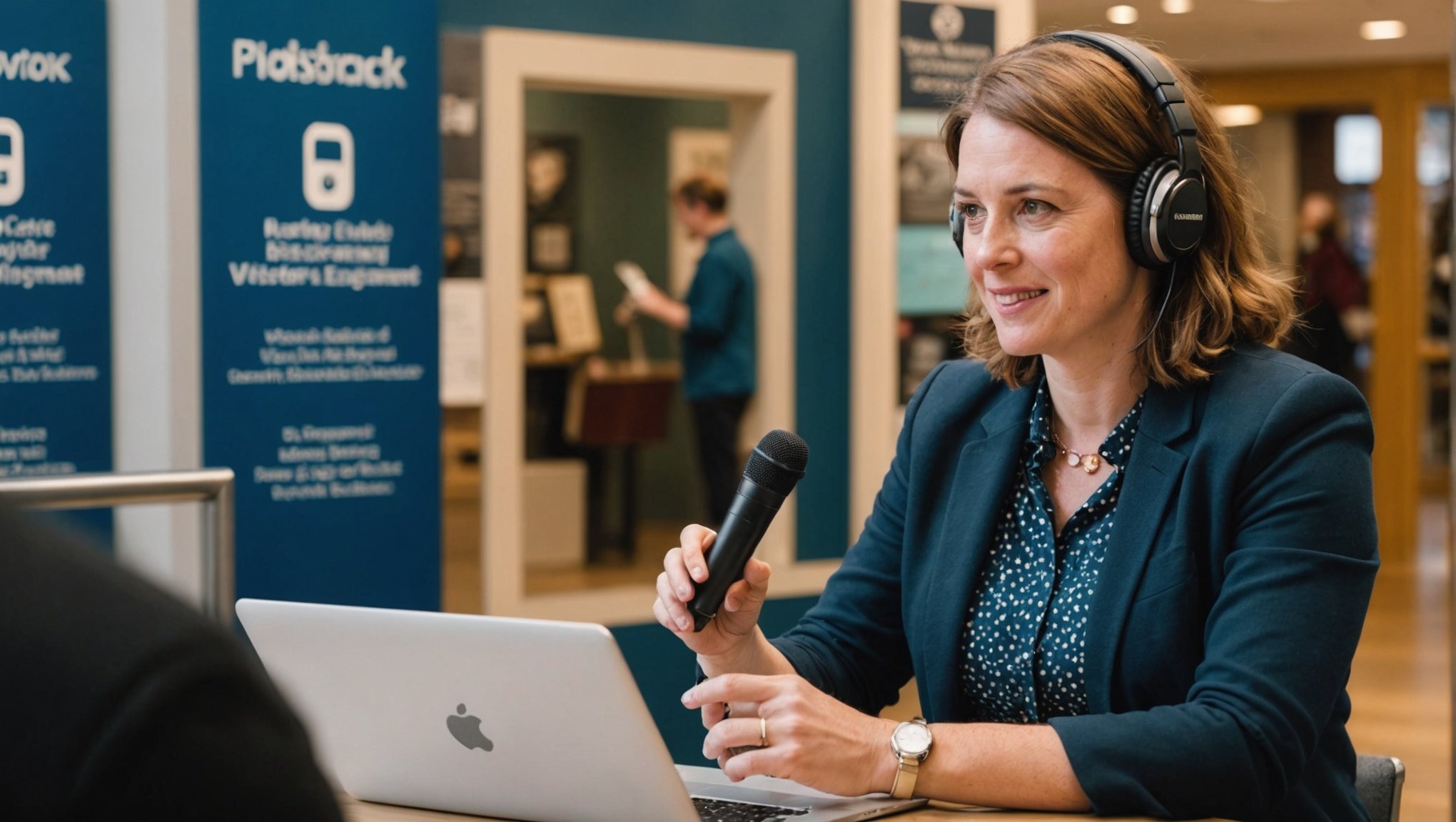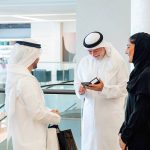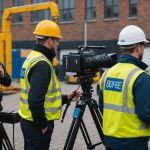Museums in the UK are evolving, seeking innovative ways to enhance visitor engagement. Podcasts exemplify this shift, transforming static exhibits into dynamic storytelling experiences. They provide a platform for curators, experts, and artists to connect with audiences, offering deeper insights and personal narratives. As listeners tune in, they foster a new relationship with art and history, making visits memorable. Explore how this audio medium can captivate diverse audiences and elevate museum experiences beyond the traditional approach.
The Role of Podcasts in Enhancing Visitor Engagement
Podcasts have emerged as a dynamic medium for visitor engagement in museums, offering a unique way to connect with audiences. By integrating audio content in museums, institutions can cater to diverse visitor demographics, providing an inclusive experience that transcends traditional visual displays.
This might interest you : Unlocking Client Attraction: Effective Content Marketing Strategies for UK Freelancers
One of the key advantages of using podcasts in museums is their ability to deliver rich, immersive storytelling. This storytelling aspect can significantly enhance the visitor experience, making the exhibits more relatable and memorable. Through engaging narratives, museums can convey complex ideas and historical contexts in a more digestible format, captivating the audience's imagination.
Additionally, podcasts can reach a broader audience beyond the physical confines of the museum. This accessibility allows individuals who may not be able to visit in person to still engage with the museum's content, fostering a deeper connection and appreciation for the exhibits.
Also read : Crafting a Taste of Britain: Leveraging Local Ingredients for UK Breweries” Distinctive Edge
Overall, the integration of podcasts in museums not only enriches the visitor experience but also broadens the reach and impact of museum content, making it an invaluable tool for modern engagement strategies.
Successful Case Studies of Podcasts in UK Museums
Exploring UK museum podcasts reveals fascinating insights into how institutions leverage this medium to enhance visitor engagement. Notable examples include the British Museum's "Museum of the World" podcast, which effectively weaves together global stories and artifacts, offering listeners a rich auditory journey. This podcast has been successful in drawing both local and international audiences, showcasing the power of storytelling in capturing interest.
Another compelling case is the Tate Modern's "Tate Podcast," which provides behind-the-scenes insights into exhibitions and artist interviews. This approach not only enriches the visitor experience but also extends it beyond the museum walls, allowing art enthusiasts worldwide to connect with Tate's dynamic offerings.
Visitor feedback and engagement metrics from these podcasts highlight their success. For instance, the National Gallery's podcast series has reported increased visitor interest, with listeners expressing a deeper understanding and appreciation of the art pieces discussed. This feedback underscores the effectiveness of podcasts in transforming passive viewing into an interactive learning experience.
From these podcast success stories, museums have learned valuable lessons. Key among them is the importance of crafting engaging narratives that resonate with diverse audiences. Additionally, integrating visitor feedback into podcast content has proven crucial in refining and enhancing the listening experience, ensuring it remains relevant and impactful. Through these strategies, UK museums continue to set a precedent for innovative audience engagement.
Best Practices for Creating Engaging Museum Podcasts
Creating a successful museum podcast involves a blend of strategic planning and creativity. To craft engaging audio content, it's essential to focus on several key elements. First, compelling storytelling is at the heart of any captivating podcast. Museums should weave narratives that resonate with listeners, using vivid descriptions and emotional connections to bring exhibits to life. This approach not only attracts listeners but also retains their interest throughout the episode.
Another crucial aspect is the use of museum audio strategies that incorporate diverse voices and perspectives. By featuring interviews with curators, historians, and even visitors, podcasts can offer a multifaceted view of the exhibits. This diversity enriches the content, making it more relatable and engaging for a broad audience.
Podcast creation tips also emphasize the importance of high-quality audio production. Clear sound and professional editing enhance the listening experience, ensuring that the focus remains on the content rather than technical distractions. Investing in good equipment and skilled production teams can significantly elevate the podcast's appeal.
To attract and retain listeners, techniques such as consistent release schedules and interactive elements like Q&A sessions or listener feedback can be effective. These strategies help build a community around the podcast, fostering a sense of connection and ongoing engagement with the museum's offerings.
Benefits of Podcasts for Visitor Experience in Museums
Podcasts offer numerous benefits for enhancing the museum visitor experience, primarily through their ability to deliver informative content that deepens understanding and engagement. By providing detailed narratives and expert insights, podcasts can illuminate complex subjects, making them more accessible and relatable. This approach not only enriches the visitor's knowledge but also fosters a more profound connection to the exhibits.
Furthermore, podcasts create immersive experiences that complement physical exhibitions. By incorporating audio elements, museums can transport listeners into different historical contexts or artistic worlds, enhancing the sensory dimensions of their visit. This audio engagement benefits visitors by providing a multi-layered experience that goes beyond what is visually displayed.
Additionally, podcasts play a crucial role in fostering community connection and promoting continuing education. They offer a platform for discussions and interviews with curators, artists, and historians, which can engage a broader audience. This ongoing dialogue encourages listeners to explore topics further, thereby supporting lifelong learning and a deeper appreciation of cultural heritage. Through these strategies, podcasts significantly enhance the overall museum visitor experience.
Integrating Podcasts with Existing Museum Offerings
Integrating podcast integration into museum programming can significantly enhance visitor offerings by aligning audio content with existing themes and exhibitions. Museums can strategically develop podcasts that complement their current displays, providing deeper insights and context. This approach ensures that the podcast content is relevant and enhances the visitor's understanding of the exhibits.
One effective strategy is to use podcasts as part of guided tours and educational programs. By offering audio guides that expand on the themes of the exhibits, museums can create a more immersive experience. Podcasts can feature interviews with curators and experts, enriching the narrative and providing visitors with unique perspectives that they might not get from visual displays alone.
Moreover, marketing podcasts alongside traditional museum events and activities can increase their reach and impact. By promoting podcasts in conjunction with special exhibitions, lectures, or workshops, museums can attract a broader audience. This dual approach not only boosts attendance but also engages visitors before, during, and after their visit, making the museum experience more comprehensive and memorable.
Incorporating podcasts into museum offerings requires thoughtful planning and execution. However, when done effectively, it can transform the way visitors interact with and perceive museum content, fostering a deeper connection and appreciation for cultural heritage.
















